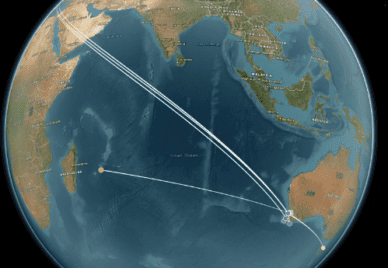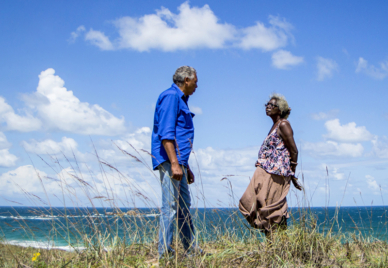HASS and Indigenous Research Data Commons
About the HASS and Indigenous Research Data Commons
In collaboration with Indigenous Australians, the research community, industry and government, the HASS and Indigenous Research Data Commons (HASS and Indigenous RDC) is harnessing research data to enhance Australian social and cultural wellbeing, and help Australia understand and preserve our culture, history and heritage.
New digital platforms and data directories will improve how researchers discover and access Australia’s rich humanities, arts, and social science (HASS) and Indigenous data and innovative analysis tools. The program is also upskilling researchers to use data-driven approaches to HASS research and apply Indigenous data governance principles.
As an engine for research translation, the HASS and Indigenous RDC will enable researchers to develop and sustain cross-sectoral and multidisciplinary data collaborations at a national scale through federated models. It integrates the ARDC’s services for compute, storage infrastructure, persistent identifiers and data discovery with analysis platforms and tools that are supported by expertise, standards and best practices.
The Challenge
Digital tools, techniques and methods are enablers of innovative HASS and Indigenous research.
Consultation with the HASS research community revealed a broad range of disciplines with great diversity of activity, approaches and readiness to benefit from a research data commons (ARDC, 2020). There was considerable evidence of the impact of data-enabled research driving new methodological approaches and contributing to the emergence of sub-disciplines and transdisciplinary collaborations. In other cases, researchers were using data and new tools to expand the capacity of, or to accelerate, traditional methods.
The HASS research community draws on a rich data landscape and the adoption of new data, tools and methods. However, scoping studies by the ARDC and the Australian Academy of the Humanities published in 2020 demonstrated that the landscape is fragmented, and the benefit of these tools and data access was in many cases limited by the absence of national infrastructure or coordinated integration of existing resources. Additionally, the uneven distribution of this work limits collaboration and slows the development of new research communities. The Australian Academy of the Humanities (AAH, 2020) found that at the time, Australia did not have any nationally comparable HASS research infrastructures to those found overseas, and this represented a significant gap in national research capacity. Consequently, research data assets currently enabling HASS research either did not exist in Australia, or were institutionally hosted and uncoordinated, and largely not FAIR (findable, accessible, interoperable and reusable).

How the HASS and Indigenous Research Data Commons Was Established
The 2016 National Research Infrastructure Roadmap identified opportunities to accelerate the impact of HASS and Indigenous research. It recommended improving the overall coordination of research infrastructure that supports access to, and analysis of, physical and digital collections using tools such as digitisation, aggregation and interpretation platforms.
The Australian Government Department of Education subsequently commissioned 3 studies that identified a number of investment-ready programs that would benefit from national research infrastructure funding.
Download the scoping studies from the:
While not all recommendations within those scoping studies were funded at the time, the activities earmarked to participate in the initial round of development displayed an advanced state of readiness to participate in and benefit from a HASS and Indigenous RDC.
The 2021 National Research Infrastructure Roadmap further identified opportunities to accelerate the impact of HASS and Indigenous research and reinforced support for existing and future investment in both national research infrastructure for Indigenous knowledges and HASS. In 2023, the ARDC-led HASS and Indigenous RDC received the largest ever investment in HASS research infrastructure in Australia. The $25 million grant from the Australian Government’s 2023 National Collaborative Research Infrastructure Strategy (NCRIS) Funding Round, along with co-investment from national partners, will continue to deliver long-term, enduring national digital research infrastructure to support HASS and Indigenous researchers in Australia.

Our Work
Explore the activities currently underway in the HASS and Indigenous RDC.
Collaboration
This program is guided by expert representatives from relevant national and international bodies in the HASS and Indigenous research domains:
The Outcomes
In Phase 2 of the HASS and Indigenous RDC, the proposed outcomes are:
A vibrant community of digitally proficient HASS and Indigenous researchers who are equipped with the expertise to explore and ethically use national data assets and other distributed research tools
Collaborative partnerships between institutional HASS and Indigenous data custodians across research, GLAM organisations, policy makers and Indigenous sectors
Access to cutting-edge tools and distributed platforms that empower researchers and communities to use, annotate, extend and analyse HASS and Indigenous data effectively
- Leveraging state-of-the-art data science techniques to characterise data at scale
- Identifying strategic opportunities for digitisation and ensure the discoverability of a growing knowledge base of high-value, high-quality data assets
A culture of trust and commitment through transparent problem-solving practices – our collaborative approach aims to elevate and sustain collective capabilities within the HASS and Indigenous research data ecosystem.
Our Impact
We have been supporting world-class HASS and Indigenous research with real-world impact through the HASS and Indigenous RDC. Read case studies of some of these efforts:
Resources for Researchers
The HASS and Indigenous RDC builds on the ARDC’s experience working in partnerships to deliver digital research infrastructure for HASS and Indigenous researchers, which has culminated in a wide range of datasets, free tools and upskilling materials. Explore these resources.












